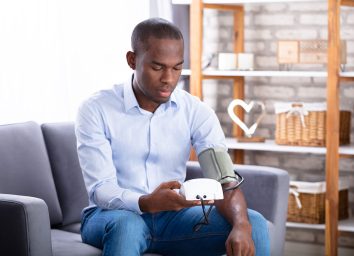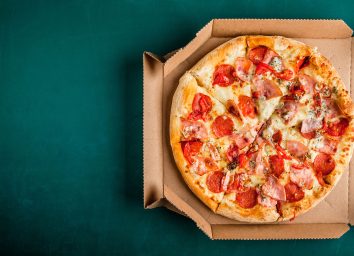The Worst Drinking Habits for Blood Pressure, According to the Mayo Clinic
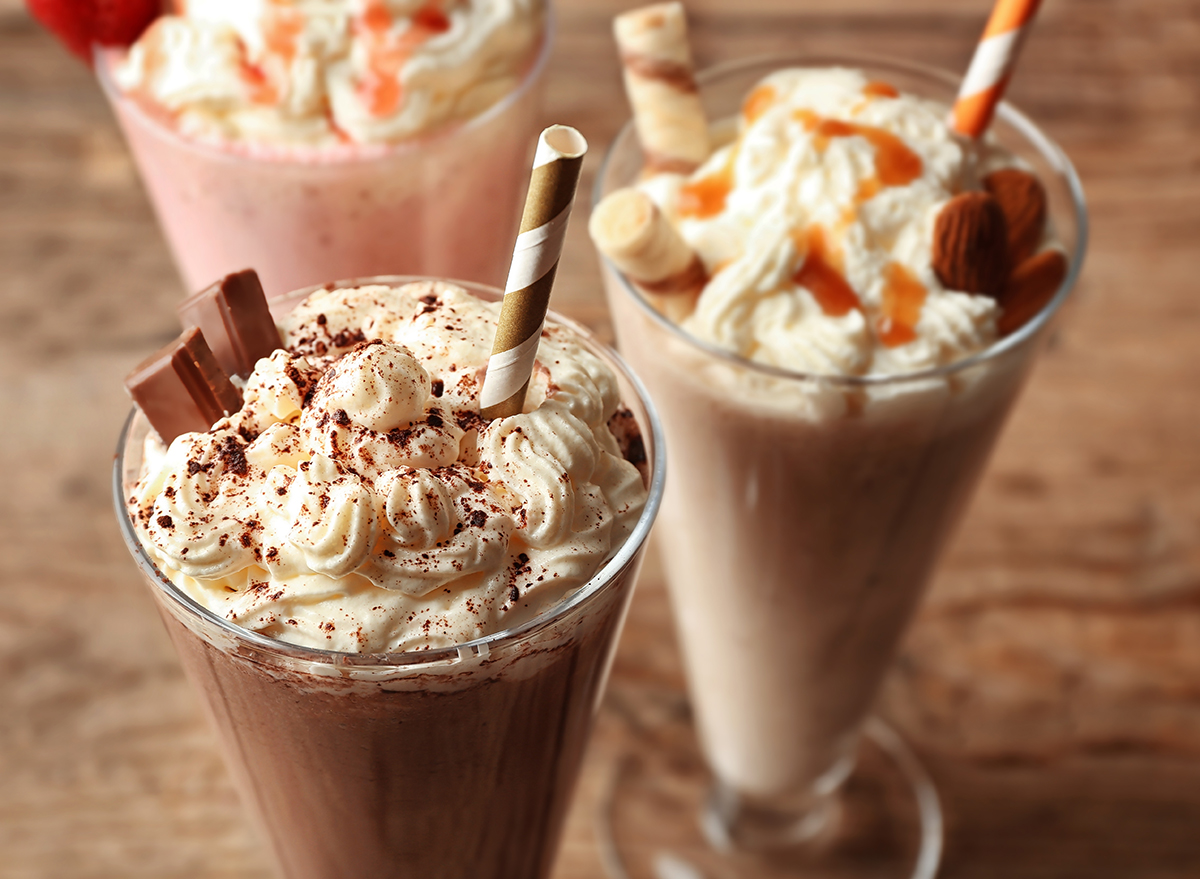
It may come as a surprise to you, but high sodium consumption isn't the only bugaboo for those concerned about high blood pressure. Making a habit of drinking certain types of beverages is a common blood pressure lifter. And while occasional spikes in your blood pressure don't usually cause alarm, numbers that stay high consistently can cause damage to interior artery walls, allowing plaques to collect and stiffen and narrow the blood vessels. That leads to an increased risk of cardiovascular events like heart attack and stroke. This is why it's important to avoid these worst drinking habits for blood pressure.
Read on to discover the drinking habits to give up for your blood pressure, and for even more healthy tips, be sure to check out our list of The 7 Healthiest Foods to Eat Right Now.
You pound energy drinks.
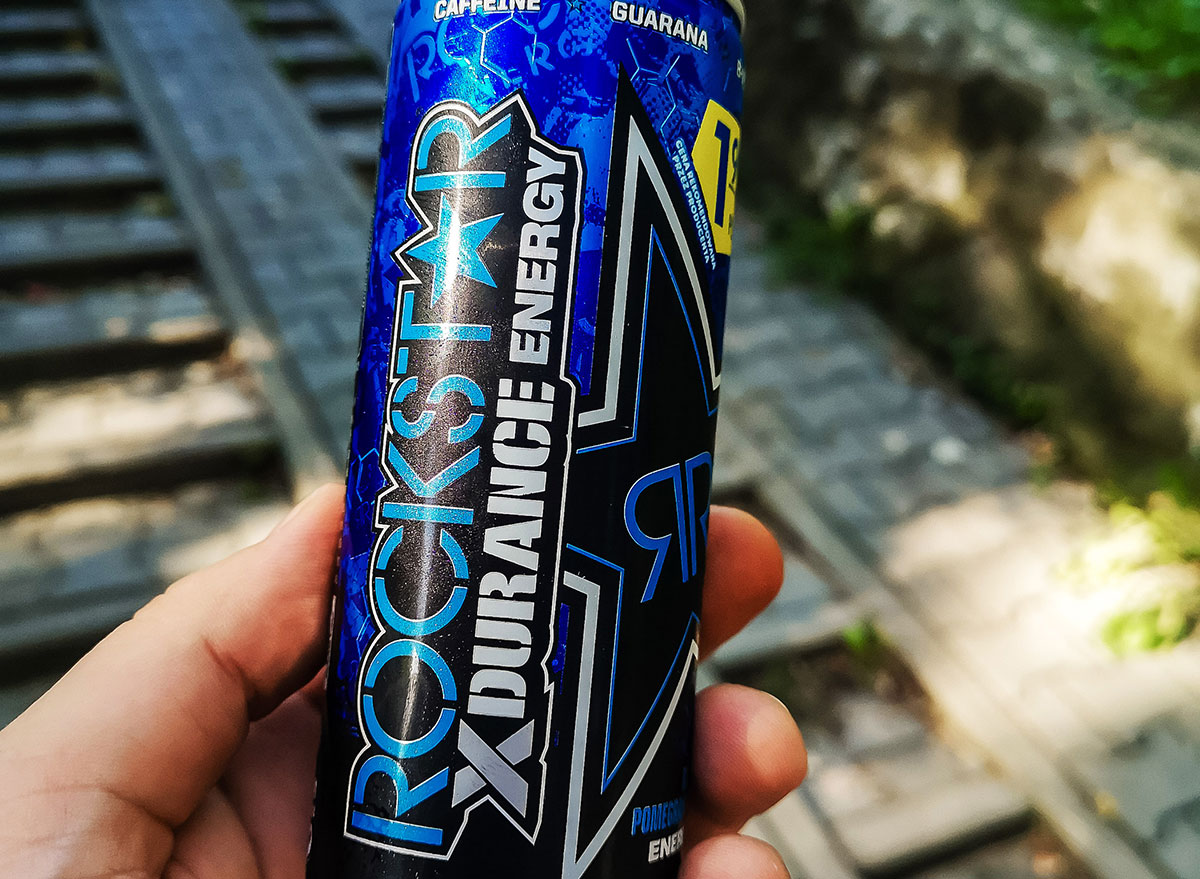
If you're bullish on Red Bull and other jolt-inducing soft drinks, consider the findings of a Mayo Clinic study that appeared in a JAMA Network Research Letter.
In the experiment, researchers recruited 25 healthy people with an average age of 29. Each participant was given a 16-ounce Rockstar energy drink and a placebo drink to consume on two separate days, about two weeks apart. The placebo drink looked and tasted similar to the Rockstar but did not contain caffeine or the other stimulants in the energy drink, such as taurine, guarana, ginseng, and milk thistle.
The researchers took blood samples from the subjects and measured their blood pressure 30 minutes after participants finished drinking the beverages and found that the energy drink caused a 6.2% rise in systolic blood pressure and 6.8% increase in diastolic pressure compared to 3.1% systolic and 0% diastolic for the placebo drink. They also found that participants' levels of the stress hormone chemical norepinephrine rose dramatically (a 73.6% rate of change) after drinking the energy drink.
"We now show that the increases in blood pressure are accompanied by increases in norepinephrine and this could predispose an increased risk of cardiac events—even in healthy people," says study author Anna Svatikova, M.D., Ph.D., a Mayo Clinic cardiology fellow, in a JAMA release.
Here are 12 Dangerous Side Effects of Energy Drinks, According to Science.
You binge drink alcohol.
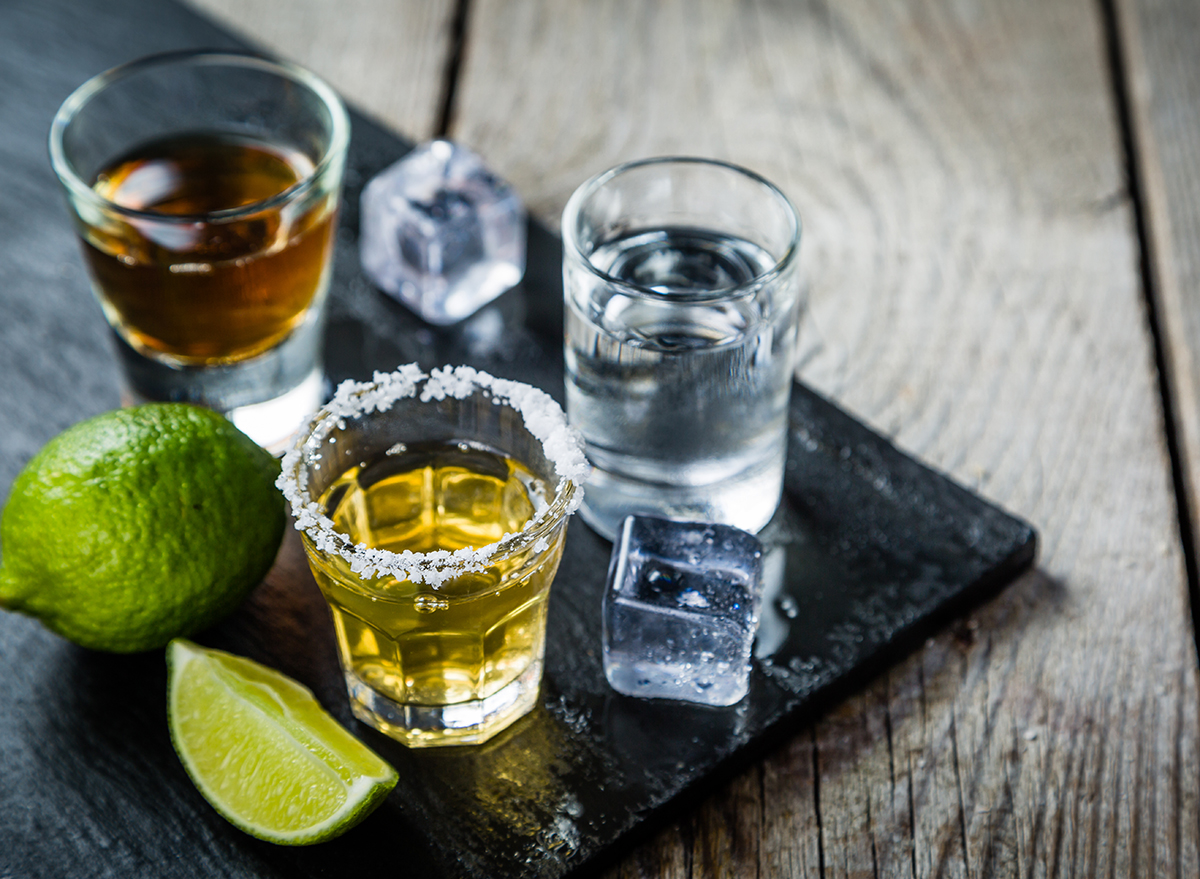
Alcohol has long been tied to increased risk of hypertension, so this may not come as a surprise, but you may not realize how few drinks can trigger high blood pressure.
"Having more than three drinks in one sitting temporarily raises your blood pressure, but repeated binge drinking can lead to long-term increases," writes Mayo Clinic cardiologist Francisco Lopez-Jimenez, MD.
According to Lopez-Jimenez, binge drinking for women can be defined as four or more drinks in two hours, and five for men. More than three and four drinks per day for women and men respectively is considered heavy drinking. Find out why alcohol use disorder may be even more dangerous than you ever knew by reading This One Habit Can Cut Your Life Short by 28 Years, Says Science.
You are a caffeine fiend.

For some, caffeine may not have any effect on their blood pressure, especially if they've been drinking coffee regularly and have built a tolerance. However, for others, caffeine can have serious effects on one's blood pressure, according to the Mayo Clinic.
If you already have high blood pressure, check with your doctor about limiting caffeine or cutting it out altogether, writes Sheldon Sheps, MD, in an article for the Mayo Clinic.
"To see if caffeine might be raising your blood pressure, check your blood pressure before drinking a caffeinated beverage and again 30 to 120 minutes afterward," he writes. "If your blood pressure increases by about five to 10 points, you may be sensitive to the blood pressure raising effects of caffeine."
You drink sugary sodas and shakes.
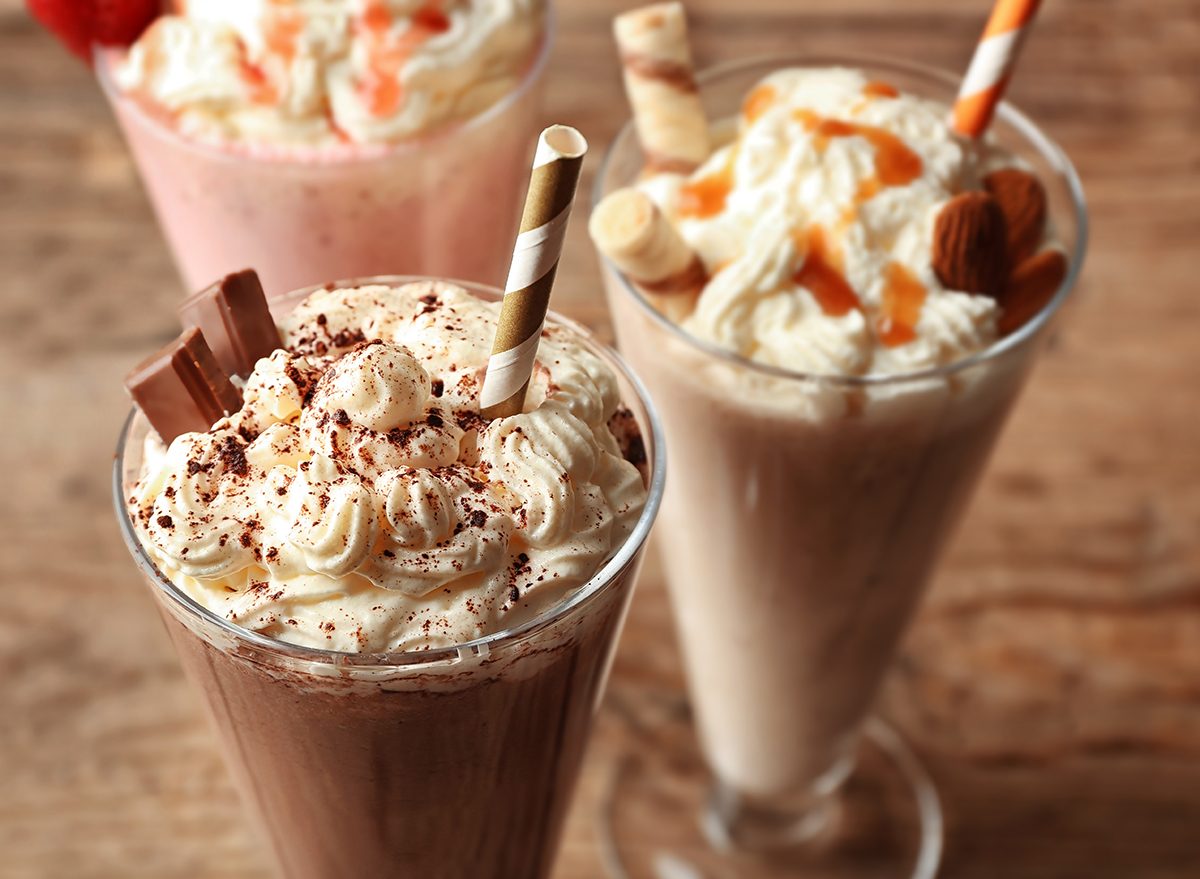
Many sodas contain caffeine, but another potential blood pressure lifter is the calories in sugar-sweetened beverages. Calories from drinks add up quickly and can lead to significant weight gain, which in turn can increase your risk for hypertension. The Mayo Clinic says elevated blood pressure can happen due to a long list of risk factors, with weight gain sitting at the top. According to their article, with a larger body mass, your body will work harder to supply oxygen for your blood and nutrients to your tissues, resulting in increased blood going through your vessels and creating force on your artery walls.
So make sure to keep these worst drinking habits in mind, and for more lifestyle changes to keep your blood pressure levels healthy, be sure to check out The Easiest Way to Lower Your Blood Pressure, Says Science.

